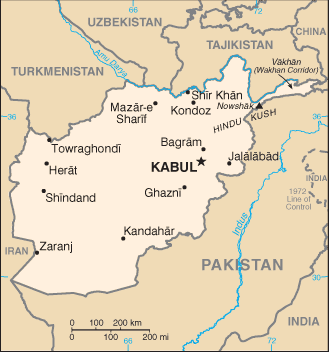In the era of global media, Obama Administration attempts to tell different stories to different audiences about their war intentions have become problematic, and nowhere has that been more apparent that the July 2011 “pullout” date, which officials have repeatedly admitted isn’t really a pullout date at all.
 European allies looking for a long-term commitment to the endless war were quick to accept the explanation of US officials that the July 2011 date was a work of flat out fiction. But Afghan tribal elders, not used to the intricacies of blatantly lying to the American public about an unpopular war they have no intention of ending, aren’t so clear on it.
European allies looking for a long-term commitment to the endless war were quick to accept the explanation of US officials that the July 2011 date was a work of flat out fiction. But Afghan tribal elders, not used to the intricacies of blatantly lying to the American public about an unpopular war they have no intention of ending, aren’t so clear on it.
Which has left commanders on the ground, like Lieutenant Colonel Mark O’Donnell scrambling to convince the elders that they aren’t really going to leave in July 2011, 18 months which seem remarkably short in the scale of what has been nearly a decade of American occupation.
And if convincing the American public the war is almost over is vital to their support here, convincing would-be Afghan allies that the war is going to be going on “for a long time” is just as vital to support there. Two conflicting messages, but for an administration that wants to have its cake and eat it too, a policy which will likely continue as long as possible.


